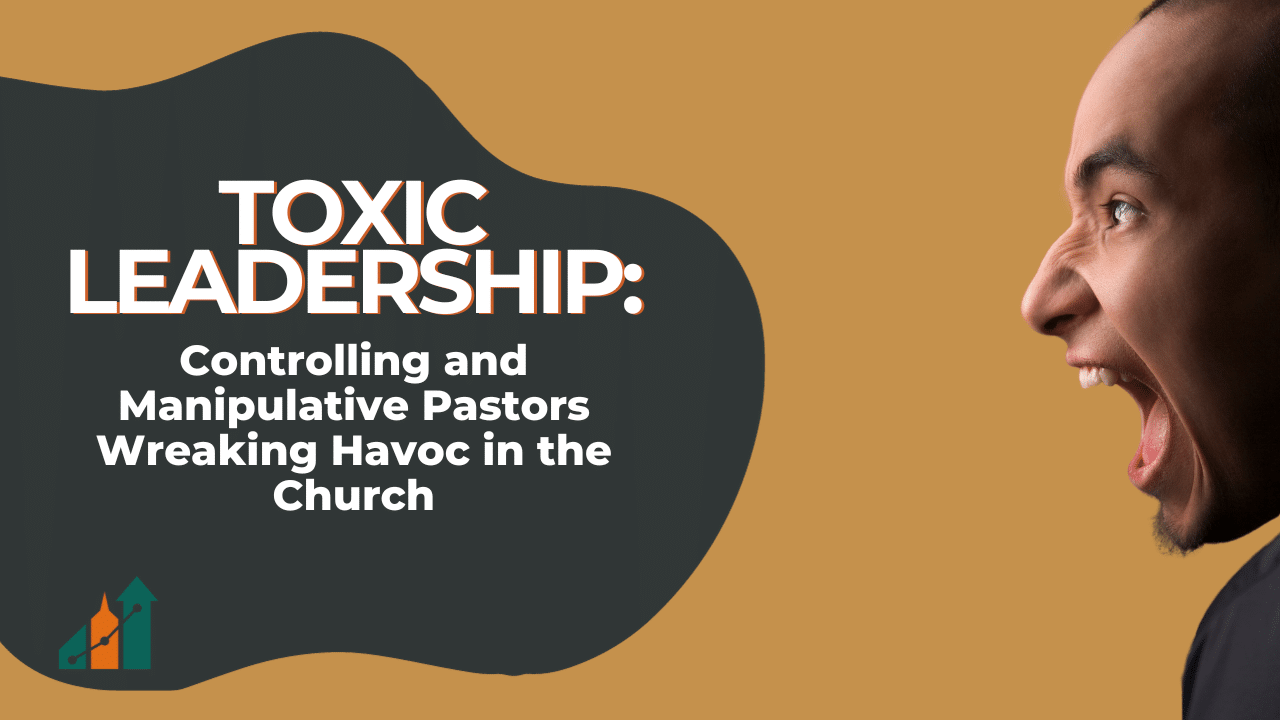The Church Revitalization Podcast – Episode 209
Controlling, manipulative, and outright abusive pastors are harming congregations across America. While exact statistics are hard to come by, some studies suggest that up to 30% of pastors may exhibit narcissistic personality disorder, significantly higher rates than that of the population at large. In my personal experience dealing with pastors through the work of The Malphurs Group and Healthy Churches Global, the concentration has not been that high. However, the humility required to seek outside help with church health would be a trait most narcissistic or toxic pastors would lack, resulting in myself and our team facing such leaders less often.
The effects of these toxic leaders are devastating – driving committed Christians away from the church, harming the spiritual and psychological health of congregants, and undermining the witness and work of the church.
At some point in life and work, we’ve all had to deal with toxic people. Bad behavior lives on a spectrum, with some people being more tolerable than others. It would be nice if the Church was a place where these toxic traits didn’t exist, but sin remains, so these things must be endured and dealt with.
Subscribe below to never miss an episode.
Identifying controlling and manipulative behaviors
Toxic pastors exhibit a range of behaviors that concentrate power in their own hands, silencing critics and escaping accountability. These include micromanaging all aspects of church life, refusing input from staff and congregants, and eliminating checks on their authority. They surround themselves with “yes men” while distancing themselves from anyone who asks tough questions or challenges their decisions.
Abusive church leaders routinely belittle, blame, and shame those under their care.
Narcissistic pastors spend more time promoting themselves than caring for the needs of congregants. They claim credit for every success while scapegoating others for any failure. Sometimes, you may find that their sermons revolve around themselves rather than God’s Word being the focus. Everything points back to the inflated ego of the toxic leader.
Some of the worst offenders may play more in the covert than overt, rarely letting people see their true nature come out. They receive great support from those who don’t know them well and only manipulate people one-on-one instead of being witnessed by others.
The effects of toxic leadership on congregations
The effects of an abusive pastor are profoundly destructive to the spiritual, psychological, and organizational health of a congregation. Their harsh leadership breeds cynicism, division, and infighting as the pastor plays favorites and turns people against each other. Congregants learn to keep their heads down rather than risk the pastor’s wrath.
Constant criticism from the pulpit leads to declining morale and loss of joy. People no longer enthusiastically give their time and energy to a church where they feel oppressed. Toxic pastors engender mistrust and create a spiritual malaise that suffuses the entire religious community.
Not surprisingly, attendance and giving soon begin to decline. The most committed members are the first to leave because they see the deep dysfunction. The abusive pastor scapegoats these “disloyal” people on their way out. The exodus soon includes young families and future church leaders. Only the sycophants remain or those too intimidated to leave.
Behind the scenes this spiritual toxicity places enormous strain on church staff and volunteers. Music directors are belittled for song choices, secretaries blamed for unimportant mistakes, and associative pastors accused of disloyalty. Exhausted and demoralized, they soon quit. The turnover cripples the church’s ministries and operational effectiveness.
Why Toxic Pastors Stay in Power
Given the manifest damage created, how do controlling pastors maintain their power? Several factors allow abusive leaders to remain entrenched.
Most churches lack strong accountability structures to limit the authority of the pastor. Toxic leaders take advantage of this freedom from oversight to further their power and control. They deliberately sideline moderating influences.
Over time, narcissistic pastors intentionally create a cult of personality. Through constant self-promotion, they portray themselves as visionary leaders. Their devotees cannot imagine the church without its celebrity pastor. In less extreme cases, they simply have a large following of people who think they are just fine. It’s important for the toxic pastor to limit the number of people who can really get to know him.
Toxic pastors also intimidate and marginalize potential challengers. They attack any perceived “disloyalty” and have strategies to coerce compliance. This results in concentric circles of complicity, passive enablers, and bystanders, allowing the dysfunctional status quo to continue.
Even pastors who suspect trouble are reluctant to rock the boat. They rationalize staying silent to avoid church splits or public scandal that could harm the mission of the church. Out of purported noble intentions, leaders fail to intervene, implicitly enabling the abusive pastor’s continued destructive leadership.
Taking Action
Tolerating a toxic pastor indefinitely is not an option for any congregation that takes its biblical mission seriously. How can churches take courageous action to deal with abusive leaders before they cause lasting damage?
The first step is establishing meaningful oversight and accountability structures to review pastoral performance. This may require constitutional changes which can be a big hurdle. Annual 360-degree assessments can reveal problems known only to insiders. Exit interviews ensure that grievances by departing staff and members reach church leadership. Ongoing pastoral mentoring provides guidance and support.
Specific behavioral warning signs should automatically trigger intervention. Verbal abuse, intimidation of staff, misappropriation of funds, theological extremism, and sexual misconduct must never be tolerated. Dysfunctional pastors need a pathway to repair harm, change behavior, or be removed.
Training in ethical leadership, clear behavioral guidelines, and transparent decision-making are essential to rein in toxic behaviors before they spiral out of control. Pastors lacking interpersonal skills or exhibiting narcissistic traits need help to serve responsibly.
When confronting a pastor, protections must be in place for whistleblowers. Abusive leaders hunt for leaks to conceal problems and undermine critics. Guaranteeing anonymity and prohibiting retaliation encourages reporting of concerns early when correction is still possible.
As a last resort, the congregation may have to remove a pastor engaging in sustained abusive behaviors. This extreme remedy requires laying the proper groundwork beforehand and having the full support of denominational and congregational leadership. The process must be perceived as fair, with the aim of restoring health to the congregation and pastoral office.
__________________________________________
Left unchecked, the presence of a toxic pastor in a congregation results in creeping demoralization, infighting, decline, and spiritual decline. Through a combination of narcissistic behaviors and exploiting trust, abusive leaders avoid accountability and concentrate power in their own hands. They leave damaged organizations and people in their wake.
The courageous but necessary response is implementing structures and processes focused on high ethical standards and pastoral accountability. Providing a means for congregants to express concerns protects the church from internal dangers. Prioritizing the spiritual and organizational health of the congregation over an individual enables the removal of harmful leaders when necessary.
Confronting and correcting pastoral misconduct is never easy, but the result will be positive renewal. The focused mission of the church can be restored, and the congregation can flourish again in an environment characterized by mutual care, trust, and joyfulness in the Gospel calling.
Watch this episode on YouTube


A.J. Mathieu is the President of the Malphurs Group. He is passionate about helping churches thrive and travels internationally to teach and train pastors to lead healthy disciple-making churches. A.J. lives in the Ft. Worth, Texas area, enjoys the outdoors, and loves spending time with his wife and two sons. Click here to email A.J.

